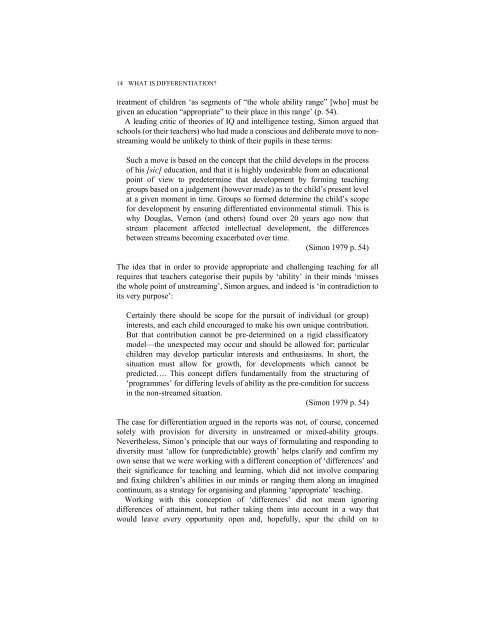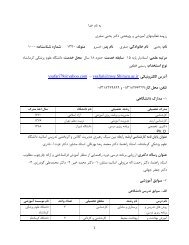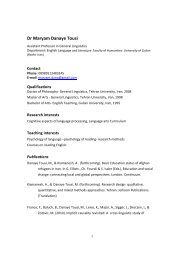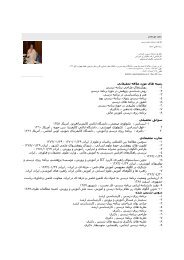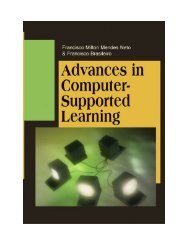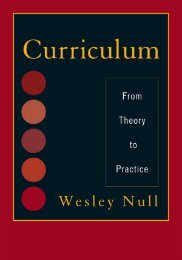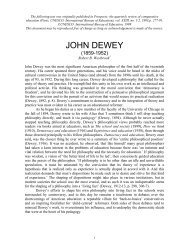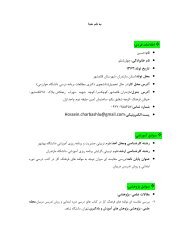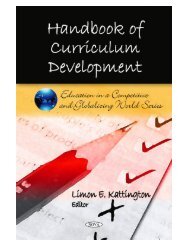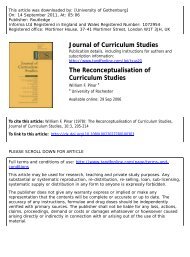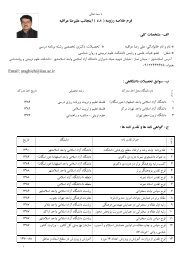Edited by
Edited by
Edited by
Create successful ePaper yourself
Turn your PDF publications into a flip-book with our unique Google optimized e-Paper software.
14 WHAT IS DIFFERENTIATION?treatment of children as segments of the whole ability range [who] must begiven an education appropriate to their place in this range (p. 54).A leading critic of theories of IQ and intelligence testing, Simon argued thatschools (or their teachers) who had made a conscious and deliberate move to nonstreamingwould be unlikely to think of their pupils in these terms:Such a move is based on the concept that the child develops in the processof his [sic] education, and that it is highly undesirable from an educationalpoint of view to predetermine that development <strong>by</strong> forming teachinggroups based on a judgement (however made) as to the childs present levelat a given moment in time. Groups so formed determine the childs scopefor development <strong>by</strong> ensuring differentiated environmental stimuli. This iswhy Douglas, Vernon (and others) found over 20 years ago now thatstream placement affected intellectual development, the differencesbetween streams becoming exacerbated over time.(Simon 1979 p. 54)The idea that in order to provide appropriate and challenging teaching for allrequires that teachers categorise their pupils <strong>by</strong> ability in their minds missesthe whole point of unstreaming, Simon argues, and indeed is in contradiction toits very purpose:Certainly there should be scope for the pursuit of individual (or group)interests, and each child encouraged to make his own unique contribution.But that contribution cannot be pre-determined on a rigid classificatorymodelthe unexpected may occur and should be allowed for; particularchildren may develop particular interests and enthusiasms. In short, thesituation must allow for growth, for developments which cannot bepredicted. This concept differs fundamentally from the structuring ofprogrammes for differing levels of ability as the pre-condition for successin the non-streamed situation.(Simon 1979 p. 54)The case for differentiation argued in the reports was not, of course, concernedsolely with provision for diversity in unstreamed or mixed-ability groups.Nevertheless, Simons principle that our ways of formulating and responding todiversity must allow for (unpredictable) growth helps clarify and confirm myown sense that we were working with a different conception of differences andtheir significance for teaching and learning, which did not involve comparingand fixing childrens abilities in our minds or ranging them along an imaginedcontinuum, as a strategy for organising and planning appropriate teaching.Working with this conception of differences did not mean ignoringdifferences of attainment, but rather taking them into account in a way thatwould leave every opportunity open and, hopefully, spur the child on to


